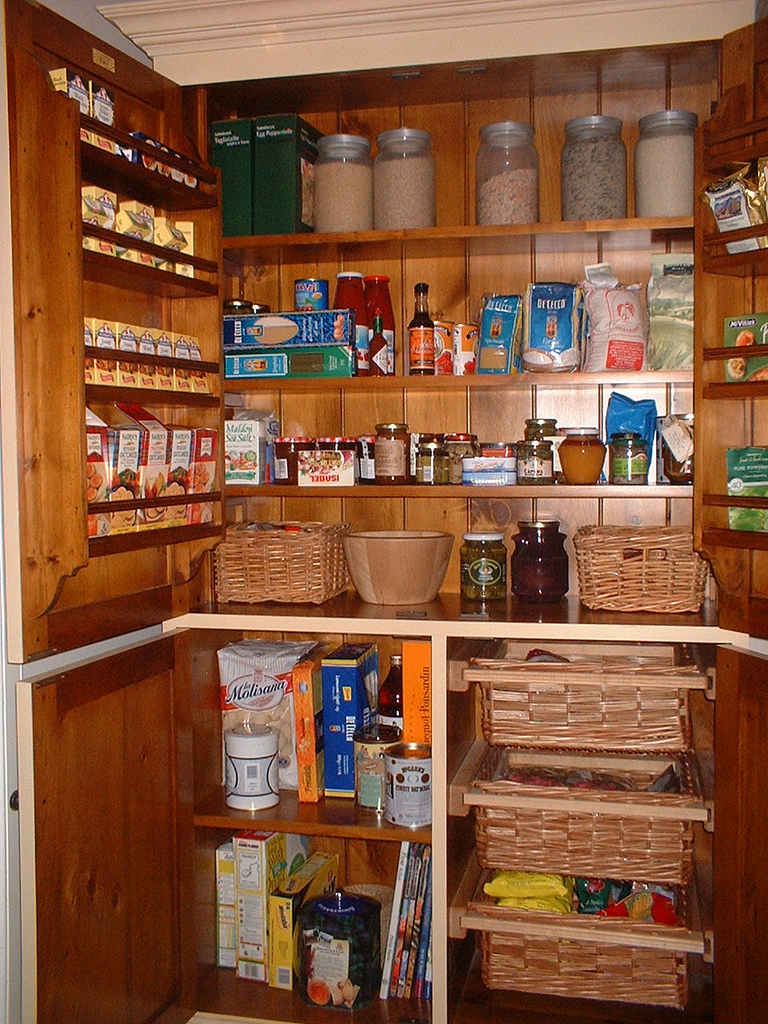8 Major Mistakes People Make In Survival Food Storage
- By Karla Solis
- Feb 26, 2017

1.Not enough variety Ninety five percent of the people stored the four basic items: wheat, milk, honey, and salt. Statistics show most of us won't survive on such a diet for several reasons.
a. Many people are allergic to wheat and may not be aware of it until they are eating it meal after meal.
b. Wheat is too harsh for young children. They can tolerate it in small amounts but not as their main staple. c. We get tired of eating the same foods over and over and many times prefer to not eat, than to sample that particular food again. This is called appetite fatigue. Young children and older people are particularly susceptible to it. Store less wheat than is generally suggested and put the difference into a variety of other grains, particular ones your family likes to eat. Also store a variety of beans. This will add variety of color, texture and flavor. Variety is the key to a successful storage program. It is essential that you store flavorings such as tomato, bouillon, cheese, and onion.
2. The food tastes bad – Most foods they buy or store are not foods they would normally eat. They also forget to try the foods they buy and later find out (in an emergency) that they are bad.
3. Use Your Storage – People don’t know what to do with it. It's vital that you and your family become familiar with the things you are storing. You need to know how to prepare these foods. This is not something you want to have to learn under stress. Your family needs to be used to eating these foods. One solution is to buy survival foods from a reputable manufacturer like www.survivalcavefood.com that lasts a long time and won’t have to be rotated
4. Balance - Time and time again I've seen families buy all of their wheat, then buy all of another item and so on. Don't do that. It's important to keep well-balanced as you build your storage. Buy several items, rather than a large quantity of one item. If something happens and your have to live on your present storage, you'll fare much better having one month supply of a variety of items than a year's supply of two or three items.
5. Containers - Always store your bulk foods in food storage containers. I have seen literally tons and tons of food thrown away because they were left in sacks, where they became highly susceptible to moisture, insects, and rodents. If you are using plastic buckets make sure they are lined with a food grade plastic liner available from companies that carry packaging supplies. Never use trash can liners as these are treated with pesticides. Don't stack them too high. In an earthquake they may topple, the lids pop open, or they may crack. A better container is the #10 tin can which most preparedness companies use when they package their foods
6. Vitamins - Vitamins are important, especially if you have children, since children do not store body reserves of nutrients as adults do. A good quality multi-vitamin and vitamin C are the most vital. Others might be added as your budget permits.
7. Quick and Easy and "Psychological Foods" - Quick and easy foods help you through times when you are psychologically or physically unable to prepare your basic storage items. "No cook" foods such as freeze-dried are wonderful since they require little preparation, MRE's (Meal Ready to Eat), such as many preparedness outlets carry, canned goods, etc. are also very good. "Psychological Foods" are the 'goodies' - Jello, pudding, candy, etc. - you should add to your storage.
8. Waste money They don’t know how to put together a good variety so they try to go to the grocery store and pay way too much for individual items when it is better to find company like www.survivalcavefood.com who has ready prepared variety meals that last for years and are very inexpensive per serving.
Everyone need to have food storage no matter where you live. Disasters can happen anywhere and you must be prepared.

